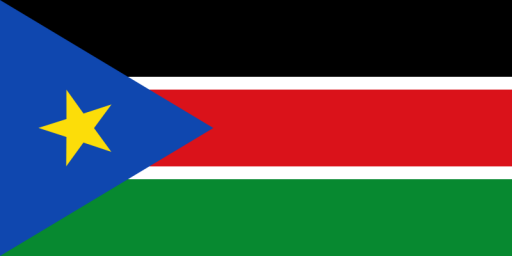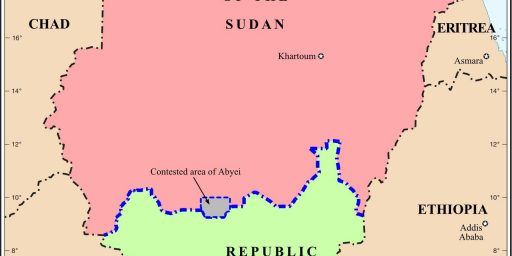Sudan Aids in War on Terror
According to the Los Angeles Times, the Sudanese government serves as “an unlikely ally in the U.S. fight against terror,” just as it continues to come under attack for grave human rights violations:
Official Pariah Sudan Valuable to America’s War on Terrorism
The warming relationship has produced significant results, according to interviews with American and Sudanese intelligence and government officials. They disclosed, for example, that:
• Sudan’s Mukhabarat, its version of the CIA, has detained Al Qaeda suspects for interrogation by U.S. agents.
• The Sudanese intelligence agency has seized and turned over to the FBI evidence recovered in raids on suspected terrorists’ homes, including fake passports.
̢ۢ Sudan has expelled extremists, putting them into the hands of Arab intelligence agencies working closely with the CIA.
̢ۢ The regime is credited with foiling attacks against American targets by, among other things, detaining foreign militants moving through Sudan on their way to join forces with Iraqi insurgents.
Sudan has “given us specific information that is … important, functional and current,” said a senior State Department official who agreed to discuss intelligence matters on condition of anonymity. The official acknowledged that the Mukhabarat could become a “top tier” partner of the CIA.
“Their competence level as a service is very high,” the official said. “You can’t survive in that part of the world without a good intelligence service, and they are in a position to provide significant help.”
[…]
A U.S. source familiar with Sudan’s cooperation said, “They’ve not only told us who the bad guys were, they’ve gone out and gotten them for us. Hell, we can’t get the French to do that.”
While such details may be new to some of us (they certainly are to me), the collaborations aren’t exactly held secret. See page 90 of the just-released State Department Country Reports on Terrorism:
In 2004, despite serious strains in US-Sudanese relations regarding the ongoing violence in Darfur, US-Sudanese counterterrorism cooperation c0ntinued to improve.
By contrast, refer back to the Times article for the following passage:
A senior U.S. government official familiar with terrorist threats in the region said Khartoum was not at present a state sponsor of terrorism.
“These are not all nice guys, but they have gone way past a passing grade on counter-terrorism cooperation and don’t technically belong on the list,” he said. “The reason they are still there is Darfur, which is not related to state-sponsored terrorism but makes lifting sanctions now politically impossible.”
This story raises many complex questions about whether the US is substantially constrained in stopping the genocide. As such, I’ll need time for reflection before taking a position. But let me note a couple of things:
First, we should remember that foreign policymaking is biased toward domestic concerns. In other words, there’s a natural tendency to examine international problems through the prism of our national priorities. Unless human rights concerns are closely intertwined with our security, we give them less attention than they perhaps deserve. The genocide in Sudan is one such issue. While many are familiar with it, it still doesn’t have the urgency that other problems do.
My fear is that because Khartoum is providing critical intelligence — at a time when the War on Terror is of prime importance — the odds against firm anti-genocide action will be stacked up even higher.
Second, while it’s natural for governments to weigh conflicting interests, it’s awfully difficult to make clear judgments when intelligence is the main concern. If we were thinking about intervention vs. financial stakes (e.g., American companies have many investments in Khartoum), the decision is relatively easy: genocide overrides money, for the most part. If we were thinking about intervention vs. geopolitical stability (e.g., we need the regime to stay up lest a more threatening state dominates the region), the decision is a bit more difficult, but still tangible: we can assess, with a degree of certainty, how countries will counteract one another.
When it comes to intelligence, however, it’s much more difficult. How do we evaluate the trustworthiness of clandestine sources, especially in the wake of 9/11? We can say that it’s valuable, but does it justify turning a blind eye to genocide? We can say that it’s suspect, but what if it helps us avoid another massive terrorist attack?
My gut tells me that the intelligence isn’t valuable enough that we should back off from exerting full-blown diplomatic pressure on Sudan. It tells me that, in the end, the instability resulting from genocide will prove too much of a national-security danger for even good intelligence to overcome. But these are just instinctive reactions. Unfortunately, amid all the uncertainty, it may be the best that I can go by.




